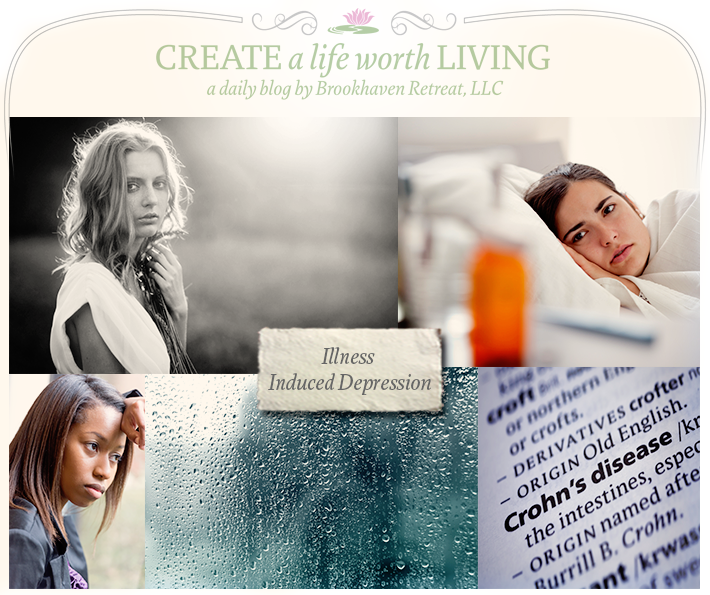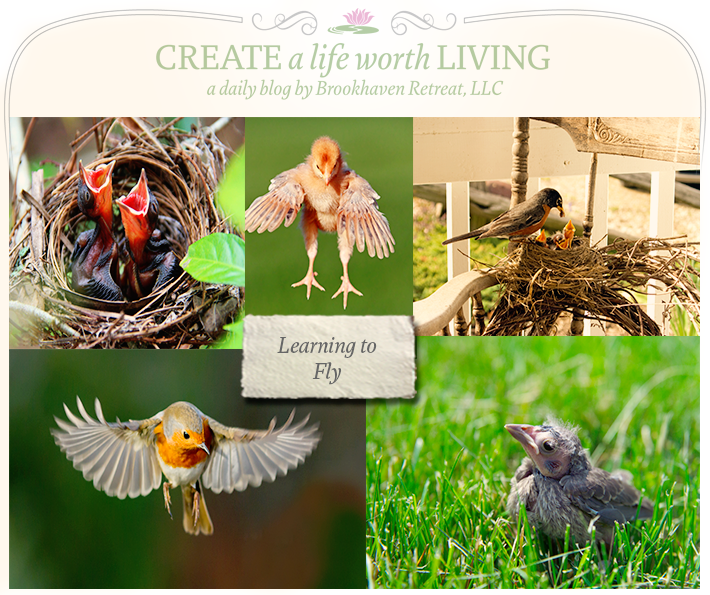We are a private pay treatment center and do not accept any type of insurance. Costs associated with care are the responsibility of the client.
Bullying . . . How Do We Stop It?

At the start of 4th grade, my son started a new school due to a move. I wasn’t really worried. He had played basketball from 1st-3rd grades so I knew he would know some of the other kids. He was a likeable kid who always made friends easily.
I should have known something was wrong. He was missing way too much school. He was never one that liked to miss. He was afraid he would miss out on something. But as the new school year began, his frequent misses were now averaging a couple days a week. He would be fine and then when I pulled up to drop him off at school, he would complain and sometime even cry that he felt bad. It was a struggle not to lose my cool, but I did not understand. We knew his teacher. His older brother had had her at his other school. Many of the staff were acquainted with family members. We even had a good family friend who worked in the cafeteria.
One afternoon, having missed yet again, I confronted him. Why did he not want to go to school? Did he not realize that his father and I were going to end up in truancy court because we allowed him to miss? Something finally gave way, and he opened up. One of the boys in his class was bullying him. He was taking his lunch. He was telling him things like ‘if he made the starting line-up for basketball he would be sorry’ and a number of other things. This kid had even physically punched him in the back during gym class. My son was the victim of a bully.
My heart went out to him. Between wanting to comfort and reassure him, I wanted to grab the other kid up by his neck and hang him from the nearest tree. But I remained calm only for my son’s sake. I told my son this was totally unacceptable and it was ending, TODAY. I then called the principal of the school. I explained that over the past 6-7 weeks of school that “yes” my son had missed a great deal of school and went on to tell her that he had just told me one of the kids in his class was bullying him. The principal reassured me that she would take care of it-starting NOW.
My son was a little hesitant about returning to school the next day. My husband and I both escorted him into the school that morning. We met with the principal who told my son that he had done nothing wrong and that it would be okay. And it was.
A few days later, the grandfather and mother of the “so-called bully” approached my husband and apologized to both him and my son. Apparently, my son was not his only victim. The other boy, I was told, has a lot of behavioral problems. Whatever his problem, it is totally unacceptable.
Until then, I was aware of bullying, but not really. I knew it went on around us, but my kids got along with everyone. And though my son’s case was not as severe as some of the other cases, it was still serious.
Bullying has always been a problem in schools, but in the past several years, the seriousness of it has leaped to new bounds. According to the National Center for Educational Statistics, in 2013 nearly 1 in 3 students (or 27.8%) reported being bullied during the school year. ABC News reported that 160,000 students miss school every day because of fear of bullied.*
And according to the Center of Disease Control’s 2012 findings, students who experience bullying are at risk for depression, anxiety, sleep difficulties, and poor school adjustment. www.nobullying.com/bullying-suicide/ finds that “there is a strong link between bullying and suicides. In the last few years a string of suicides in the US and around the world has called attention to this problem. It happens in both boys and girls.” It can be either person-to person or cyber bullying.
So how do we stop “bullying”? Addressing the problem before it starts.
- Assess how it occurs, where it happens, how to intervene and then re-assess.
- Engage students, staff, teachers, parents and the community.
- Create policies and rules: ex: zero-tolerance
- Build a safe environment. Meetings, newsletters, website, student handbook, etc.
- Continue to educate.
- For more information, please go to www.stopbullying.gov/prevention.
*ABC News, Sue Donaldson James, “Teen Commits Suicide Due to Bullying: Parents Sue School for Son’s Death”. April 2, 2009.
I Was Never Happy Being Depressed

When I was in my early twenties, I went through a severe bout of depression. I was sad and anxious all the time and struggled during social events. I chalked up my social anxiety to my introverted personality but for the life of me, I could not understand why I was always sad. I was young, healthy, and for appearances sake, I was happy.
My dissatisfaction was more evident when I was alone. My thoughts would turn to irrational guilt. My mother had been ill so I was always feeling guilty for not spending more time with her. I felt guilty that my home was not always spotless. Social guilt would consume me when I would realize I hadn’t seen my friends in several weeks but I had been tired to the point of exhaustion and not sleeping well. In addition to the guilt, I was also extremely anxious. If I tried to relax, any little noise would make me react in either a startled jump or a twitch. Eventually, when I would manage to attend a social gathering, I would be counting down the minutes until I could go home. When it finally got to that point, I asked my family for advice. Their reply: “You don’t look depressed.” So I turned to my friends. My friends responded with “You don’t act depressed.”
What exactly does depression look and act like? Should I have been curled into the fetal position sobbing? Should I have sat with my head down silently ignoring other people? Perhaps I should have worn black clothing with dark makeup as a cry for help. Depression, I learned, does not have a ‘look.’ People can be suffering from depression without any outwards signs. Depression is one of the world’s most tragically misunderstood words. While passing sadness is unpleasant, it is simply part of the human condition, a hard-wired reaction to negative life events. However, its effect on us should be temporary and have little to do with our ability to function. Clinical depression does not fade.
Without the support of my family and friends, I was lost. I finally mentioned my feelings to a coworker who empathized with me. She gave me several tips on dealing with depression, which I will share here. I credit my coworker with saving me from depression. When I had reached the darkest abyss of my existence, she held out a light and took me by the hand. She showed me that I was not alone in my struggles and that, if I truly wanted help, help was available. Below are her 9 tips that I used to defeat depression.
- Move! I had been sedentary so I started slowly with short walks. Eventually I transitioned to running. As my overall physical health improved, so did my mental health.
- Balance the body’s needs! I started upping my Vitamin D with my physician’s supervision, as I was severely deficient.
- Learn! I started reading again. Non-fiction engaged my mind and fiction allowed me to escape on a dreary day.
- Eat healthy! I changed my eating habits, adding more healthy alternatives. I reduced my sugar intake by slowly adjusting from sweet tea to unsweetened tea.
- Journal! I developed my creativity by beginning a daily journal. Writing down my issues helped me work through them when I was mentally able to have some perspective.
- Change! I realized that I was in an unhealthy relationship. Making other changes gave me the courage to end that relationship without looking back.
- Sleep! My most noticeable change came by transferring off of an inconsistent schedule. As my sleep improved, my mental health clarity started to return.
- Love! It took a while but I finally learned to love myself in spite of all of my perceived flaws. After all, if I don’t love me, who else can?
- Get help! Most importantly, I found outside help to fight my inner battle. By attending counseling, I was able to receive the guidance I needed to improve my self-esteem, and my outlook on life.
Title: Meta Description: Meta keywords:
Illness Induced Depression

It is widely accepted knowledge that your emotional state can affect your physical state. Stress and depression can cause high blood pressure, heart disease, indigestion and weight gain or loss. But it can also occur the other way around. People who suffer chronic medical illness can easily fall into depression and not recognize the symptoms as a separate illness in need of treatment.
I have a close friend who is battling diabetes. It is a daily struggle for him to balance diet, exercise and blood sugar level while also feeling “cursed.” He often feels sad and hopeless, so why try? He has resisted the idea that he is depressed due to his illness.
My friend’s mother has Crohn’s disease. She, on the other hand, recognized the symptoms of depression she was experiencing due to her chronic medical illness and sought professional help. Her antidepressant medication has helped her maintain a positive attitude and the strength and initiative to keep trying to enjoy the things she likes to do.
The combination of chronic illness and depression is a downward spiral with both conditions feeding off of each other. People suffering both medically and emotionally often lose self-esteem and begin to isolate themselves due to loss of mobility and loss of hope for the future. Do you know someone with a chronic medical issue who seems depressed as well? Take note of their mood. Sometimes an outsider expressing concern can help a person recognize they need help.
Is Binge Watching a TV Series Bad for You?

Game of Thrones has aired its last episode for the season and viewers have been left with an ice giant of a cliffhanger. Now, the waiting begins for next season. Unless, of course, you are one of those fans who has waited for the season to end to avoid the between episode wait. For those viewers, binge-watching season has just begun. Many people get so wrapped up in a television show that they are unable to avoid knowing how a cliffhanger resolves. These people have been known to sit out the entire season and then watch the entire season’s worth of episodes over a weekend, or in extreme cases, over the course of a single day. While experts disagree as to what actually constitutes binge watching, most people would agree that watching an entire season’s worth of episodes would qualify.
‘Binge’ as a word, has negative connotations that dredge up images of glassy-eyed, zombie like viewers with the remote control clenched in their fist like a lifeline. These images are not necessarily what you would see if you were to walk in on a group of your friends binge watching a series, though. Most folks who binge-watch are actually happy people. This is because their brain releases endorphins during their favorite show, which causes them to feel good. When they stop watching, however, the feelings go away but, for the majority of people, this is only a temporary compulsion. For these people, watching television is a temporary escape.
Sometimes, however, binge watching is used as a substitute for human companionship or as a coping strategy. Studies have shown that viewers who binge watch for this reason are more likely to experience feelings of loneliness, depression, and self-regulation deficiency. These people are using television to avoid negative feelings, which also happens to be the same method of coping used by binge eaters and binge drinkers. When they are lonely, they seek the companionship of fictional characters. As these binge viewers finish a sitcom series, that companionship disappears and they go through a period of bereavement, mourning the loss of the ‘friends’ they spent the weekend or afternoon with. Then, loneliness sets in again.
Other times, binge watching occurs because people feel an exceedingly compulsive need to resolve cliffhangers to overcome the anxiety brought on by the uncertainty of a character’s future. Unfortunately, cliffhangers were originally built into the episodes to ensure that viewers would return the following week. The season finale would have a much more dramatic cliffhanger to ensure viewers would return after an even longer hiatus. This episodic pattern predated streaming video and has not changed overmuch as technology has advanced. Copious amounts of time spent with these characters can become the new reality for some viewers and can even occupy their dreams and nightmares. For viewers who watch an entire season, this means that the cliffhanger will affect them on a much deeper level and can potentially lead to emotional trauma.
Emotional trauma aside, binge watching television series can have lasting effects on your physical being and, as is often stated, the body and the mind are intrinsically linked. Binge watching can lead to obesity, diabetes, loss of muscle mass, loss of sleep, shrinkage of lung capacity, loss of focus due to lack of oxygen, and reduced circulation. The best way to protect your physical and mental health is to prevent becoming a regular binge watcher. If you finish a season, or even an entire series, don’t automatically move to the next season or series. Take some time off to mentally digest each show. Stretch out the process and savor your favorite characters. If you feel the need to resolve cliffhangers, then, my suggestion would be to watch only the first portion of the next episode. Let the cliffhanger resolve then save the rest of the episode for later. Finally, if you cannot control your viewing habits, seek out professional help. Television viewing, like many other habits, can become habit forming and, like any other addiction, needs treatment.
Cucumber Gazpacho with Shrimp Relish

Do you love soup, but abandon the whole idea as soon as outdoor temperatures crack 70 degrees? As one with an addiction to hot soup in the colder months, I absolutely need the heat to warm me from the inside out and to ward off depression. For me, eating hot soup is like therapy.
However, being served a bowl of hot soup in summertime is about as appealing as a sauna when it’s 90 degrees outside. But my palate sure doesn’t care. In fact, I still crave the veggies in the soup or the natural flavors of the soup I would normally eat when my bones are knocking together from the cold. If not for room temperature soup, which is not only delicious, but equally nutritious, I’m not sure what I’d do.
This recipe includes 22.7 grams of protein, minimal saturated fat, 130 mg of calcium and is packed with flavor you can’t help but fall in love with. It’s great to serve with brunch or part of a light lunch.
Ingredients:
- 2 teaspoons extra-virgin olive oil
- 3/4 pound peeled and deveined medium shrimp, chopped
- 1/2 teaspoon salt, divided
- 1/2 teaspoon black pepper, divided
- 1/4 teaspoon ground cumin
- 1/4 teaspoon paprika
- 2 cups quartered grape tomatoes
- 1/3 cup fresh cilantro
- 2 1/2 cups chopped English cucumber
- 1 cup fat-free, lower-sodium chicken broth
- 1 cup whole-milk plain Greek yogurt
- 1/4 cup chopped onion
- 2 tablespoons fresh lime juice
- Dash of ground red pepper
- 1 large garlic clove, peeled
Preparation
- Heat oil in a skillet over medium-high heat.
- Sprinkle shrimp with 1/4 teaspoon salt, 1/4 teaspoon black pepper, cumin, and paprika.
- Add shrimp to pan; sauté 2 minutes or until done.
- Stir in tomatoes; remove from heat.
- Add cilantro.
- Place remaining 1/4 teaspoon salt, 1/4 teaspoon black pepper, cucumber, and remaining ingredients in a blender; process until smooth.
- Ladle 1 cup soup into each of 4 bowls; top with 3/4 cup relish.
Source: Cooking Light
Be Your Biggest Fan

It’s that time again! Class reunions are once again giving you the opportunity to meet up with many of the people you graduated high school with. For some people it has only been a few years, for others it has been decades. Imagine how it will feel to walk in to the reunion and remember all the good times you spent with your best friends. Across the way, you see your dearest friend from that time. As you rush across to her embrace, you start to shed tears of joy. It really is her!
“Wow! Look at you,” she says. “Really packed on the pounds haven’t you? Love the dress but it sure looks hideous on you. You should send it to me so you don’t go out in public like this again. And, two words, darling . . . wrinkle cream.”
How would that make you feel? More than likely, you would feel hurt and personally attacked. You would also question why your dear friend would be so harsh to you. You might even consider that she was lashing out due to her own emotional pain or possibly even out of jealousy. She kept your secrets and had your back for all of those high school years. How could she do this to you?
Now, consider that the situation is even worse than it appears because it isn’t your BFF telling you those things but someone even closer to you. Those comments are likely assailing you on a daily basis but they don’t come from another person. They come from you. As odd as that may sound, often times, our inner critic is much harsher on us than anyone else we know. We tell ourselves things that we would never dream of saying to another human. Would you ever honestly consider telling your sister, for example, that the dress she had chosen for your cousin’s wedding was beautiful but due to her figure hung off her like a flour sack? No? Then why would you tell yourself that? If you pick a dress that you like and it makes you feel good about yourself, you should wear it proudly.
We all need to make our inner critic our best friend but we just don’t know how to do that. Well, for starters, tell yourself only the positive thoughts that you would tell your friends. If you wouldn’t judge your friend’s weight, ease up on yourself a little. Before you use negative words or thoughts when looking in the mirror, picture your best friend in front of you. If you wouldn’t say it to her, don’t say it to yourself. Consider your feelings to be just as important as her feelings. As my mother always said, if you don’t have anything nice to say don’t say anything at all. Become your biggest fan instead of your most harsh critic!
Bye Bye My American Pie: Trans Fats Banned by FDA

Tuesday, the FDA took a bold step to ensure healthy food choices by banning the use of trans fats as a food additive. The ban is set to create sweeping changes to the way Americans cook and eat and is expected to be fully in effect by June 18, 2018. If you are curious as to why trans fats must be banned, read on for more information about the negative effects on both physical and mental health from consuming trans fats.
Trans fats were added to foods as early as 1911 with the worst offenders being baked goods (such as pies), fried foods, and more recently, microwave popcorn. Studies researching the effect of trans fats on human physiology, by contrast, were not fully undertaken until the late 1990s, well after trans fats had become a staple in the Western Diet. Once the studies began to be released, a growing sense of alarm began to spread. Trans fats were linked with an increase in inflammation and oxidative stress. The structural integrity of neuronal membranes in the brain was found to be susceptible to trans fats and this susceptibility was quickly linked to cognitive decline and mental illness. Studies have shown that consumption of trans fats increased the risk of serious depression by up to 48% and people who ate the most trans fats during the study had the most severe depression. In fact, trans fats were the only dietary fats in the study that showed a significant association with self-reported quality of life scores. Study participants whose diets contained the most trans fats were most likely to report characteristics associated with lower quality of life including feeling tired or worn out, negative attitudes about work and social life, and negative beliefs about future health.
In exchange for all of these negative effects, trans fats, in general, offered zero health benefits. While they are attributed with increasing shelf life and improving the overall texture of food, they are directly tied to multiple health issues including heart disease, stroke, and mental illness. They raise levels of bad cholesterol while lowering levels of good cholesterol and cause a hardening of the arteries, even in young people. In fact, noticeable levels of trans fats have been discovered in the umbilical cords of newborn babies deposited before birth. By removing trans fats from the “generally recognized as safe” category, the FDA will require manufacturers to petition for an exception to include them in products thereby reducing public exposure.
Having this information should be a catalyst in creating change in your life. Trans fats are obviously bad for you but how would you go about removing them from your body? Is it even possible? Actually, it is possible to remove trans fats from your body in order to promote better overall physical and mental health. By following the tips below, you can reduce or eliminate your intake of trans fats and speed the process of removing them from your body.
- Commit to the detoxification process. Start reading labels and making informed decisions on food purchases. Trans fats can be hidden in the nutritional information. Words to look out for include “shortening” and “partially hydrogenated.”
- Restructure your diet to include more fiber, which will bind to the fats in your body and allow you to release them. Aim for around 50 grams of fiber per day with a minimum intake of 30 grams of fiber.
- Introduce enzyme-rich juice to your diet to aid in fat release. Carrot juice is a perfect option.
- Consider raw or steamed vegetables and greens. Avoid fats except for naturally occurring fats such as those found in avocados or nuts.
- Drink at least 90 ounces of water per day. Add lemon to help gently cleanse the liver.
- Start your day by drinking a cup of warm water on an empty stomach. A very warm cup of water in the morning can help cleanse your body by flushing out toxins.
Mom

Do you ever go to sleep at night and wake up the next morning still feeling groggy and drained? You know that you have gotten your full 8 hours of sleep like you’re suppose to, but yet your body is telling you that you just need to go back to sleep. It makes it even worse when you know you have somewhere to be, an appointment to go to, the kids have practice or you have to go to work. By the time the day ends, you can barely stand on your feet!
You come home and the day continues. You have to cook dinner, you have to do the dishes, the kids need a bath, laundry needs to be done, the dogs need to be fed, and on and on and on. It’s like you have one of those WHOA moments to yourself, thinking how am I even functioning???
This seems to be the daily life for a mom. I love being a mom, don’t get me wrong, but man it’s hard to do. You work and you come home to work. I go through each day wondering, do I have time to do everything I need to? I go to work and think about the things I need to do at home and I go home and think about the things I need to do at work, it’s a vicious cycle.
I think that’s why a lot of women develop anxiety and most of all depression. It takes us to a whole other level, pretty much we try to be superwoman and we just can’t do it all, all the time! Being a mom is the most rewarding job possible, but it is also the hardest job too. We expect so much of ourselves and when we can’t compete with the ideas we have, it becomes a sad and scary situation. I know I have been there, I know that I have had many nights where I cry myself to sleep thinking I can’t do this, what is wrong with me? I’m doing my best and giving my all but it’s not enough. My body just needs to give in and my mind won’t let it. Having so much on your plate can be exhausting and stressful!
I don’t have the answers as to make life less stressful, but I can tell you this. Take time for yourself every day, even if it’s only 5 minutes! Take a bath, go sit outside after everyone is asleep and enjoy the warm summer evening and the sounds, read a book or watch your favorite TV show. We as moms shouldn’t feel guilty for taking time for us, but for the most part we do! I’ve learned over the past years that without that time, you will slowly fall deeper into your depression and anxiety. I know it will never fully take it away but I promise it will help tremendously then you can go back to feeling like superwoman for the next day!
Break the Cycle of Insomnia by Tracking Your Sleep

There is very little worse than looking at the clock at 4:25 a.m. and knowing that you only have an hour before your alarm clock tells you to get up when you haven’t even been to sleep to begin with. Insomnia is a crushing disorder that can quickly move from slightly annoying to debilitating in a short span of time. Some of the symptoms of insomnia include depression, anxiety disorder, irritability, lack of focus, lower performance on the job or at school, slowed reaction time, substance abuse, and increased risk and severity of long-term diseases or conditions such as high blood pressure, heart disease, and diabetes.
While the occasional sleepless night is quite common, insomnia is a prolonged inability to sleep. Your risk for insomnia is greater if you are a woman, older than 60, have a mental health disorder, are under a lot of stress, or travel long distances. If you are not sleeping well, the best thing to do is to improve your sleep hygiene and to consider tracking your sleep with a sleep-tracking device or a sleep-tracking app for your smart phone. If you are interested in improving your sleep hygiene, you can read Brookhaven Retreat’s tips for that by clicking here. If you have adjusted your sleep hygiene and are still struggling with sleep, I would definitely recommend a sleep-tracking device or app. The reason for this recommendation is simple; we are not the best judges of how we are sleeping, as we are asleep during the process.
As a chronic insomniac, I am more aware than most when my sleep is disturbed. Some of my friends, however, feel that anything less than 8 hours per night is debilitating. Of course, I also have friends who feel that they can function with less than 5 hours per night. How is it possible, then, to know if you are getting good quality and quantity of sleep?
For me, personally, a sleep-tracking app is an essential part of my nighttime routine. I use one on my smart phone that I activate before attempting to fall asleep. This particular app uses the gyroscope within the smart phone to track movements during the night. It records my movements and calculates the quality of my sleep on a line graph. It is surprisingly accurate for my use. Every day, while I eat breakfast, I mentally decide how well rested I feel then I compare my opinion of my sleep with the line graph. On days when I feel like I haven’t slept well, the line will remain stubbornly jagged at the top between awake and lightly sleeping. On the other hand, on mornings when I feel like I could conquer the world, the line is nearly ‘flat-lined’ telling me that I was in deep sleep for a good portion of the night.
As my sleep radar is incredibly accurate you may wonder why I feel the need to track my sleep. I track my sleep so that I understand why I feel the way I do. If I feel like I haven’t slept well and the tracker app shows different results, I know to apply some close introspection to my mental health. I ask myself if I have been unduly anxious about sleep. On nights when I am actually not sleeping well, I know that I need to take more care with my bedtime routine and possibly add more relaxation exercises. Not only that but I use my sleep tracker app to check for patterns in my sleep. I compare my sleep journal results with my emotional journal, my food diary, exercise diary, and my personal journal so that I can find clues to my sleeping pattern. Oftentimes, I will sleep better on nights when I have eaten a small supper early in the evening as opposed to a heavy meal or eating late. Stress filled days often lead to sleepless nights.
As I have said in the past, sleep is as essential to life as water, food, and shelter. Don’t just assume you are getting enough and don’t be too quick to think you are not. Stressing about your sleep can create a self-perpetuating cycle of stress and insomnia. Your stress over lack of sleep may not be based on actual lack of sleep. Knowing for certain whether the quality and quantity of you get is enough is just as important to your health as brushing your teeth is to dental hygiene.
Learning to Fly

While enjoying my hot tea this morning, I was honored to see the first full nest of summer hatchings fledge. These are baby birds that I have had the privilege to watch from the beginning. For the past several days, the hatchlings would hop to the opening and reach out for food. Sometimes they would spend some time anxiously surveying the yard knowing instinctively that they would soon need to take flight and make their own way.
This morning, I was quite surprised that the timing was right for me to watch the first official fledgling leave the nest. The first one hopped up to the entrance and stood there looking uncertain. Unfortunately for him, the next in line was in a little too much of a hurry and jumped up behind the first, effectively knocking him from the nest. Of course the first one panicked on during the fall but desperate flapping gave way to more purposeful movement and he was able to flutter several feet before coming to a less than dignified landing at the base of a tree. He was soon joined by three more of his siblings. The final hatchling, however, chose not to leap from the nest. He spent several stressed minutes calling out for help while anxiously fluttering his tiny wings. His parents offered reassurance and even some flight lessons but he was not swayed. He went back into the nest and began calling for food.
The longer he stayed in the nest, the more insistent he became in needing to be fed. His anxiety at leaving the nest was causing him to seek reassurance. Patiently, his mother flitted to the entrance several times trying to draw him out. Finally, she climbed into the nesting box and ‘helped’ him out into the air. After a few nanoseconds of panic, instinct kicked in and he, too, flapped his winglets as hard as he could while he hoped for a safe landing at the base of the tree. Unfortunately, life can be harsh for both fledgling chicks and humans. This last fledgling wasn’t quite ready to fly. His panicked flapping slowed his fall but his landing was not graceful.
It’s tempting to stay in the nest. Staying in the nest means life feels safe and protected. If we get thrown out of the nest we either stretch our new wings and fly or we plummet to the ground. Flying poses its own challenges. In order to fly, we must embrace the spaciousness without clinging to the nest. We have to know on a primal level that instinct will kick in and our wings will catch the wind and stop our freefall. We have to overcome our fears and trepidation, trust in ourselves, and let go.
Taking action can be a difficult decision to make. Sometimes, you are ready to leap into change and other times change is unceremoniously thrust upon you. Sometimes you are thrown out of the nest because someone else believes in you and believes that, given the chance, you will be able to soar. When you fall, however, life doesn’t end. You have to get up, dust yourself and make due with your situation. The question is how do we recover from such a fall? How do we awaken our innate ability to fly? The little fledgling that fell from the nest obviously hadn’t developed the skills necessary to fly but, most importantly, he wasn’t abandoned. His parents rushed to his side and led him, hopping and flapping, into the dense brush where the other chicks were waiting. He was provided for as he grew stronger, cared for by the entire flock that called the area home. Eventually, he was ready to fly and was able to take wing with his siblings. In the end, he was no less capable, no less beautiful, and no less musical than his siblings. He just needed a little extra time and encouragement to find his wings.
Sometimes we all reach a point in our lives where we are not quite ready for the next step and need a little assistance. Perhaps we have moved out of our childhood home too early and struggled to maintain our emotional health through challenges faced at college from peer pressure, alcohol, substance abuse, or even physical or emotional trauma that has occurred. Times like these we might need some emotional support to move into the next stage of our existence. Needing assistance does not make you a less capable person. It does not mean that you are weaker or somehow defective. Just like that little bird, you just need some temporary support to be able to show the world just how capable and strong you can be. Be receptive to help and soon, you too will be able to stretch your wings and fly. Pema Chodon put it best. She said, “to be fully alive, fully human, and completely awake is to be continually thrown out of the nest.” Once you survive your first fall, you know for certain that you can rise again.
Copyright © 2015 Brookhaven Retreat, LLC. All rights reserved. Privacy StatementReport a Problem with this Site
It should be understood that any persons in pictures displayed on this page are models, and the pictures are used for illustrative purposes only.

























































